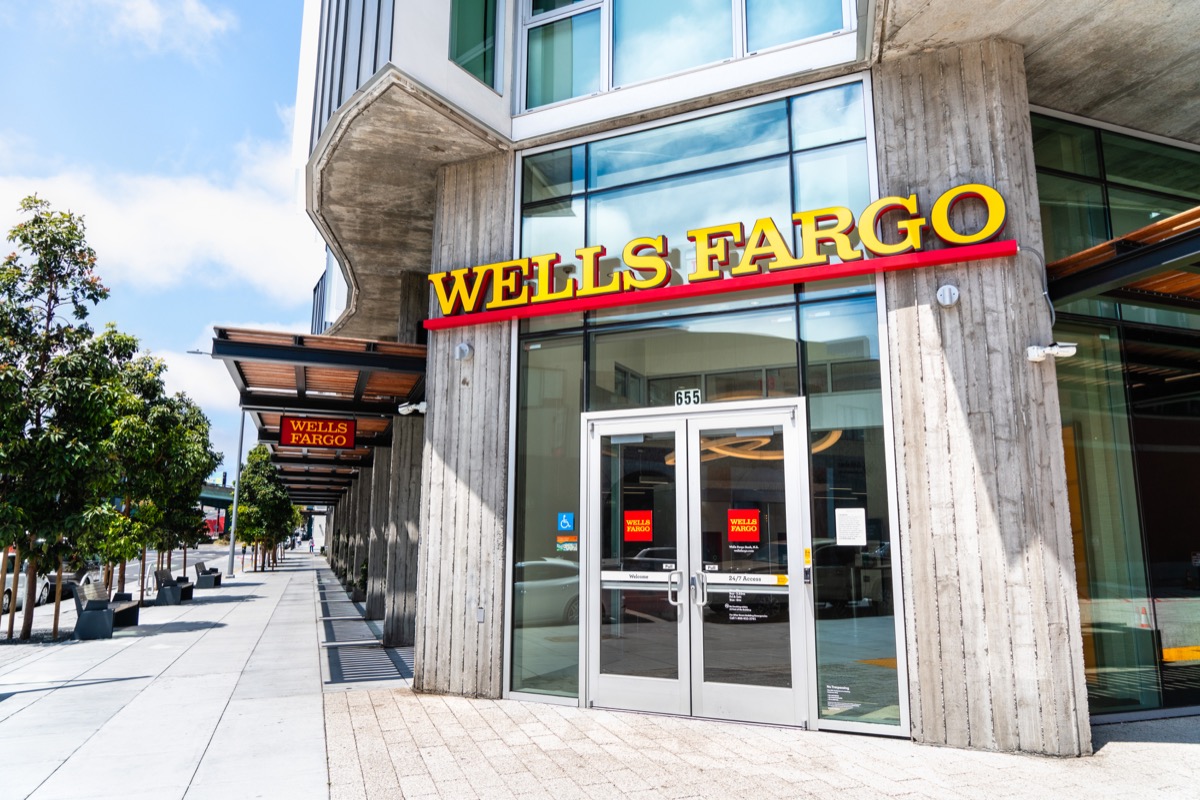If You Get This Call From Your Bank, Hang Up Immediately, Officials Warn

Even in the best situations, dealing with your bank can be a complicated and confusing experience. And whether it has to do with costly overdraft fees or trying to protect you from potential fraud, most communications from your financial institutions can feel like a bit of a blindside when you suddenly receive one out of the blue. But now, officials are warning that a new scam is preying upon victims by pretending to be their bank with an urgent message. Read on to see what should make you suspicious the next time you get a call.
RELATED: Never Use Your Phone to Do This, FBI Says in New Warning.
Scammers are targeting Wells Fargo, Citibank, and Bank of America customers over the phone.

Phone scams may be nothing new, but customers of Wells Fargo, Citibank, and Bank of America appear to be the targets of a sophisticated new version of phone fraud, Los Angeles ABC affiliate KABC reports. While the scheme plays out somewhat differently in some cases, many have reported receiving a text message claiming to be from their bank reporting a suspicious transaction or potential fraud on their account. Once victims have confirmed their numbers are active by responding to the text, scammers will call them over the phone claiming to be a representative from the bank—in many cases using a “spoofed” number that appears to be legitimate.
The fraudsters will then use Zelle to steal large sums of money from victims.

Once victims have answered the phone, scammers will tell them that a large transaction has just gone through on their accounts, usually for thousands of dollars. The fraudsters will then say the customer must make a “reverse transfer” to recover the funds using digital transfer service Zelle, sometimes using a PIN they supply. They may request your personal account information and password to oversee the transaction in other cases. But instead of replenishing the “missing” cash, this sends funds directly to the scammers’ accounts where banks can no longer retrieve it.
According to Wells Fargo, this is known as a “bank imposter” scam. In many cases, the fraudsters involved have typically found sensitive personal information through social media or a data breach that gives them an air of legitimacy when contacting victims, the Minneapolis Star Tribune reports.
RELATED: For more up-to-date information, sign up for our daily newsletter.
Banks haven’t been willing or able to return the stolen funds in many cases.

Unfortunately, although this type of scam appears to have evolved over the past few months, many banks are doing little to help those who fall victim to it. Some financial institutions argue that they are not liable for funds their customers willingly transfer to fraudsters thanks to a federal law known as “Regulation E,” which only protects against “unauthorized” transactions, The New York Times reports.
Affected customers argue that Zelle—which was created and is currently run by the nation’s largest commercial financial institutions—makes it too easy for such scams to occur. “It’s like the banks have colluded with the sleazebags on the street to be able to steal,” Bruce Barth, a victim who had $2,500 stolen from his digital wallet while hospitalized with COVID-19, told The New York Times.
Officials warn you should always verify who you’re speaking with and ignore suspicious calls.

With variations of the same scam on the rise, the Federal Trade Commission (FTC) is warning there are a few ways to avoid falling victim. If you receive a call or text with a suspicious request from your bank, the agency suggests hanging up and looking up the customer service number for your financial institution. From there, you can call back to get more information and verify what’s happening. You should also never trust caller ID, as scammers can easily spoof numbers to appear as if they’re coming from a trusted source.
Financial institutions themselves warn there are ways to spot a fraudster. “Banks would not ask a customer to transfer funds between accounts or request sensitive account information,” Bank of America said in a statement to KABC. “We alert clients during the transaction if they are sending money to a new recipient that they should only send to people they trust and never transfer money as a result of an unexpected call or text. We send fraud alerts to clients and regularly update a comprehensive online Security Center with information about avoiding scams. We encourage clients to contact the bank directly if they have a question about any transaction, claim, or communication.”
RELATED: If You Get an Email From the USPS With These 3 Words, Don’t Click on It.